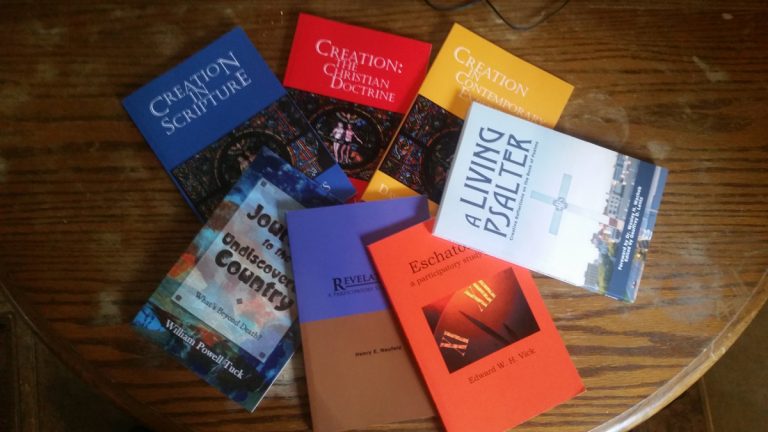Hebrews 11:1-3 – Daily Bible Study Text
Hebrews 11:1-3 begins thus: “Faith is the substance of things hoped for, the evidence of things not seen” (KJV). Most of the words here are at least a bit controversial.
It may be easier to understand the passage if we accept that the writer is not trying to define “faith” or the Greek word “pistis,” but is speaking of the function of faith. In Hebrews we have a kind of hand-in-glove paired ideas of this faith or faithfulness. On the one hand, one of the key concepts of the book is God’s faithfulness, and it is from this platform that the author calls for a response of faith, endurance, and boldness.
If you look back to chapter 3, verses 1-5, and especially verse 2, you will see the expression of the faithfulness of Jesus, who is faithful “as was Moses,” though the point of the passage is to say that Jesus is faithful to a greater mission and authority than was Moses. In verse 5 we are called upon to hold firmly to the boast and the boldness of hope.
This is one of many cases of the author of Hebrews signaling upcoming topics. Though it is the boldness and the boast of our hope we are to hold onto tightly, we have some similar wording in 11:1 where faith is the “substance” of the things we hope for. I believe it’s necessary to get to a point in the semantic range of the word used for faith, so that it is a faithful acceptance and affirmation, it is the key to what we are to hope for.
The context of chapter 11 makes this nature of the faith clear. It is a belief that drives endurance in hope that underlies the actions of all of the people of faith in the chapter. They didn’t just sit around and believe really intensely. They remained faithful to their call.
But the real key is not their faith, or the genuineness of their belief, but rather the faithfulness of the one in whom they are believing and trusting. We have only to look a few verses back to 10:23 to support this idea: “Let us hold on to the confession of our hope without wavering, because the one who promised is faithful.”
Our faith is enabled and brought forth by the one who is faithful in everything, an idea that has been building from the beginning of the book of Hebrews. The one who is faithful has been faithful in accomplishing our redemption and thus we have but to put our faith in his, faithfully.
Of course, the passages for this week all deal in some way with creation, so we have verse 3 telling us that it is by faith that we can understand God as the creator. Yet again we see God’s authority and power established by God’s creative power.
This combined faithfulness of God with a response of faith is quite common in scripture. In Romans, we have a great affirmation of God’s faithfulness in chapter 8, followed by chapter 9, which some see as a complete change of topic, as though Paul said, “Well, I’ve got to say something about Israel, so here goes.” In fact, when I took Exegesis of Romans in college, the professor was content to make it just through chapter 8.
There is a subject change, but it is incremental and not one that turns a big corner. Yes, Paul is going to talk about Israel and the salvation of Israel, but they way he does it emphasizes God’s faithfulness. It would be natural in a church of both Jews and Gentiles for people to ask after the firm, or perhaps fiery proclamation of God’s faithfulness at the end of Romans 8, to ask, “But what about Israel? It’s God’s biggest promise! Is God faithful there?”
So the discussion that follows, rather than being a sort of excursus, is a historical and eschatological affirmation of the foundation of the book’s message: God is faithful.
Which reminds me that one of the authors I publish, Edward W. H. Vick, commented in a couple of his books (Creation: The Christian Doctrine and Eschatology: A Participatory Study Guide), that we can’t really talk about soteriology without talking about creation and eschatology, and we can’t talk about creation without talking about soteriology and eschatology. These topics tie together frequently and powerfully in scripture.
This week, with these scriptures, we’re not even going to try!



